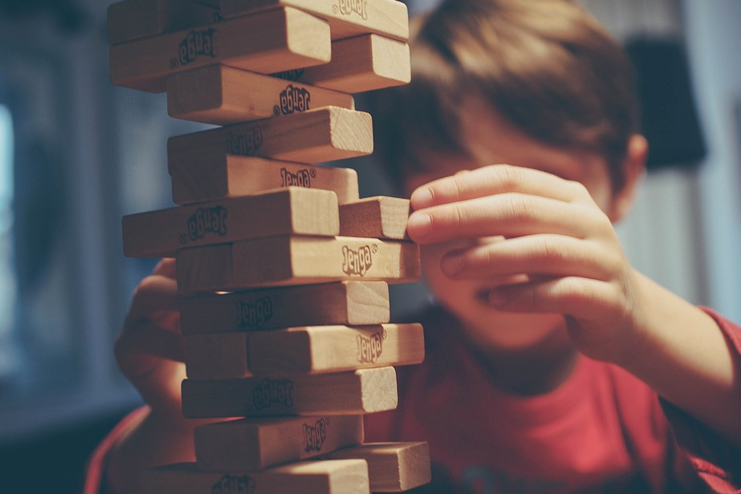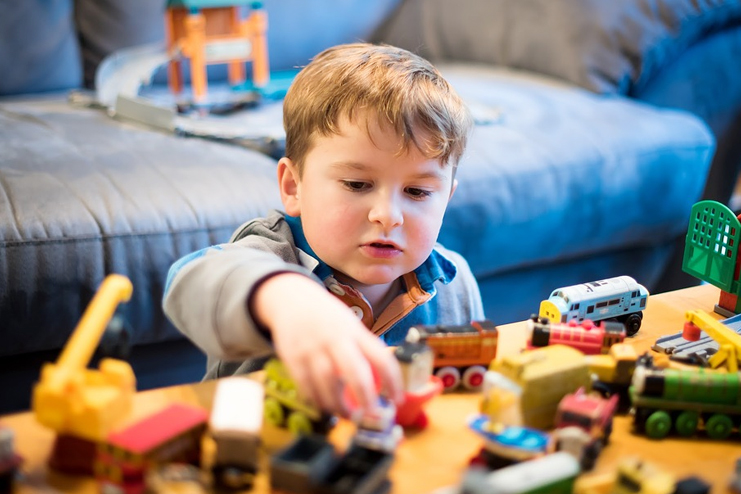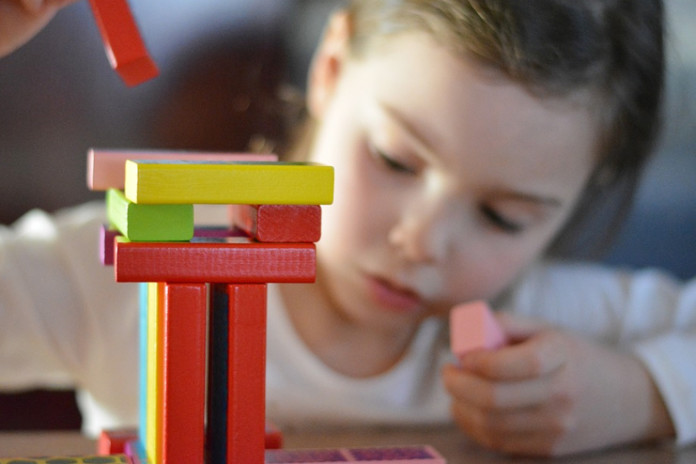What is intellectual development? What are the child intellectual development stages? What are the factors affecting the intellectual development in early childhood? All these questions must be popping up in your mind and we have the answers for them.
Children are not like adults with respect to reasoning until 15 years old. The parents have to work a lot to propel the child’s brain development. It is very easy to guide the physical growth but not that easy to track the mental growth of a child.
Well, by the end of the article, you will find or have good knowledge all about the intellectual development in children and the four stages that are involved in the child intellectual development. You will also come across the ways to stimulate the intellectual development.
What Is Intellectual Development In Child?

Intellectual development is all about the quick boost to a child’s thinking and implementation skills. It is a combination of their memory, problem-solving skills, reasoning and thinking abilities that get shaped over the course of time.
It is all about the overall growth of a child’s ability to think and reason. With the sphere of intellectual development, the child organizes their mind, ideas, and thoughts, etc. in order to make sense in the existing world around them.
Intellectual development is a contiguous process of learning. The form of learning may vary from one child to another. Some of the ways to learn are trial and error, copying, questioning, listening, role, playing, repeating etc.
Intellectual development is a gradual and continuous process. This is all about the right mixture of physical, behavioral and intellectual development in a child.
There is two other areas of development where the children get to learn-
Physical Development- This is the area where the child learns through the senses by touching, tasting, listening and playing.
Emotionally and socially- this is the area where the children learn through playing with other children and being with people around them.
Factors Involved In Intellectual Development

There are two major areas of intellectual development that plays an important role in a child’s life. They are as follows-
- Language development: it helps the child to organize thoughts and make sense of the world around them.
- Cognitive development: it is all about how the child uses their minds and organizes thinking to understand the world around them.
Certain intellectual development that is observed in 5-6 year old child are as follows-
- Vocabulary increasing to 2,000 words, sentences of five or more words
- Can count up to 10 objects at one time
- Begin to reason and argue
- Understand concepts like yesterday, today and tomorrow.
- Are able to sit at a desk
- Do simple assignments independently
Certain intellectual development that is observed in 11-year-old child are as follows-
- A longer attention span
- Understand fractions, money and the concept of space.
- Well accounted with time and months and days of the week in order.
- The kids love to read a book on their own.
Certain intellectual development that are observed in 12-18 year old teens are as follows-
- Think abstractly about possibilities.
- Reason from known principles
- They form own new ideas or questions.
- They start comparing or debating ideas or opinions.
- They are more concerned about the process of thinking.
- They are more aware of the act of thought processes.
4 Stages Of Intellectual Development In Childhood:

The stages of intellectual development (R) is formulated by Jean Piaget.
This theory of Piaget is related to the major development in brain growth. As per his theory, the human brain is not fully developed until late adolescence or in the case of males, sometimes early adulthood.
It is very important that the parents should know what to expect from their child as they develop and to be sure that the expectation may have for their child at a given age are realistic.
The stages of cognitive development are as follows-
STAGE 1: Sensory Motor Period (0-24 months)
This is regarded as the first stage of cognitive development which starts from 0-2 years. This is a phase where the activity of the child is observed and marks as a growth of the mental attributes.
The child world is governed by action only. They are ruled by sensation and action. The stages involves as follow-
Reflexive Stage(0-2 months)- this is a phase where the simple reflexive behaviour occurs and the children understand the things around the environment. This is achieved through crying and sucking only.
Primary Circular Reactions (2-4 months)- this is a phase where the reflexive behaviors occur in stereotyped repetition such as opening and closing fingers that too in a repeated manner. The kids are allowed to engage in pleasurable and enjoyable action.
Secondary Circular Reactions (4-8 months)- this is a phase where the repetition of change of action is produced for the interesting consequences such as kicking one foot or more. The child is more aware of the actions they do.
Coordination of Secondary Reactions (8-12 months)- this is a phase where the response become coordinated into more complex sequences around them. Here the actions take on an “intentional” character such as the infant reaches behind a screen to obtain a hidden object.
Tertiary Circular Reactions (12-18 months)- this is a phase where the child discovers the new ways to produce the same consequences to obtain the same goal.
Invention of New Means Through Mental Combination (18-24 months)- this is a phase where the child becomes evidence of an internal representational system. This is a stage that symbolizes the problem solving sequence before responding. The child does recognize a face and appreciate symbols.
Stage 2: Preoperational Period (2-7 years)
This is regarded as the second stage of cognitive development that starts from 2-7 years old. This is a phase where the language skills of the child develop. The child makes use of the internal representational systems.
The child is completely engrossed in egocentric thoughts at this stage of intellectual development in childhood.
The Stage Involves-
Pre-operational Phase (2-4 years)- this is a phase where the child has an increased volume of using the verbal representation but speech is egocentric. The beginnings of this stage are more about simple motor play and transductive reasoning. The child is able to think about the object without being present.
Intuitive Phase (4-7 years)-this is a phase where the child’s speech becomes more social, less egocentric. The child has an intuitive grasp of logical concepts at this period of time. There is a tendency to focus attention on one aspect of an object while ignoring others in children within this age. The child doesn’t understand the other ways or method to look at the world. Concepts formed are crude and irreversible.
The child is more inclined to believe in magical movements. The Perceptions dominate judgment at this period of time. In moral ethical realm, the child is not able to show principles underlying best behavior outcomes. Rules of a game not develop, only uses simple do’s and don’ts imposed by them.
STAGE 3: Period of Concrete Operations (7-12 years):
This is regarded as the third stage of cognitive development that starts from 7-12 years old. This is a phase where the child understands the principle of conversational signals and enter into the concrete operational stage.
This is a stage comprising more of the organized and logical thoughts. They are open with the ability to perform multiple tasks and have objects in logical sequences. The thinking becomes less transductive and less egocentric. The child is capable of concrete problem-solving.
In some of the cases, the kids face troubles in understanding the question and problems with the abstract or hypothetical imaginative nature. The child also learns to acquire a greater proficiency at the task that requires logical reasoning, distinguishing the fantasies from facts, deduction of induction, classification of objects and things, formulating a decision about cause and effect and spatial thoughts with knowledge of numbers and objects.
STAGE 4: Period Of Formal Operations (12 Years Onwards):
This is regarded as the last stage of cognitive development that starts from 12 years onwards. This is a phase where the child’s thought becomes more abstract, incorporating the principles of formal logic.
In this stage, the child comes up with the ability to generate the abstract preposition and multiple hypotheses. A stage where the thinking becomes less tied to concentration. This is a stage where the observational items and physical events don’t make any sense to the child.
The child is capable of utilizing the abstract, logical and formal thought process in order to make the surrounding around them wise. As per the Piaget theory, the main message of this stage is that not all individuals reach this stage of development or are capable of forming a thought process to be operational enough.
How To Improve A child Intellectual Development?

There are certain ways that help a lot in improving the intellectual development of the child.
Some of them are as follows-
1. Stick Out Your Tongue:
As per Elizabeth Criswell, an early childhood curriculum developer at the University of Minnesota’s Institute of Child Development, “The easiest and quickest ways to stimulate intellectual development is to stick out your tongue”. This you can do by modeling out the different angles during the period of diaper or playtime.
This will allow space and time for the baby to do it back for you. This is a way to encourage the children to practice tongue control which as a result helps in eating and speech development. You can communicate with your infant too.
2. Get On Your Belly
You have to feed the baby regularly at least for six months. This not only helps in physical growth but also helps to build a strong relationship between you and the child to interact with each other.
As per Rebecca Parlakian (R), senior director of programs at Zero to Three, she said that you can share stories and let your baby look in the mirror or bring toys to play with.
3. Ignite The Senses
In this process, the baby gets to explore the different textures around them. So, try to gather scraps of fabrics that are at least six inches by six inches long. The child gets to learn through the senses so try to describe the fabrics.
The descriptive languages help the child to develop a strong vocabulary later on, too.
4. Go Big Or Little:
This is a step where the child improves their intellectual development in the easiest way. So, just try to play with them that will help them to acquire the intellectual development.
The games will teach children the words and concepts of big and little which as a result will help the children to think about size, and shape of the object. This will directly or indirectly support early math skills, like the early stages of understanding measurement.
5. Sing Together:
Another way to improve intellectual development is to sing together. When you sing together, the baby gets to learn new words and sound. Do hold your baby when you sing together.
When you sing songs without words, validate the baby’s responses by imitating him or her, which as a result act as a positive reinforcement for the child.
This also encourages more spontaneous sound and movement actiity where the child gets a chance to learn. For this, you can play fast and slow songs, sing loudly and softly, and use high and low notes, rock and bounce to the beat of a song in order to work on the intellectual development of the child,
Intellectual development is all about the quick experiences a child is used to gaining. It is a combination of their memory, problem-solving skills, reasoning and thinking abilities that get shaped over a course of time. I hope this article has clearly given you a picture of everything about intellectual development and the ways to improve a child’s intellectual development.










































